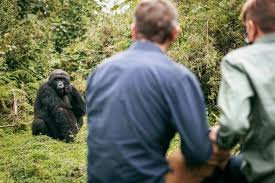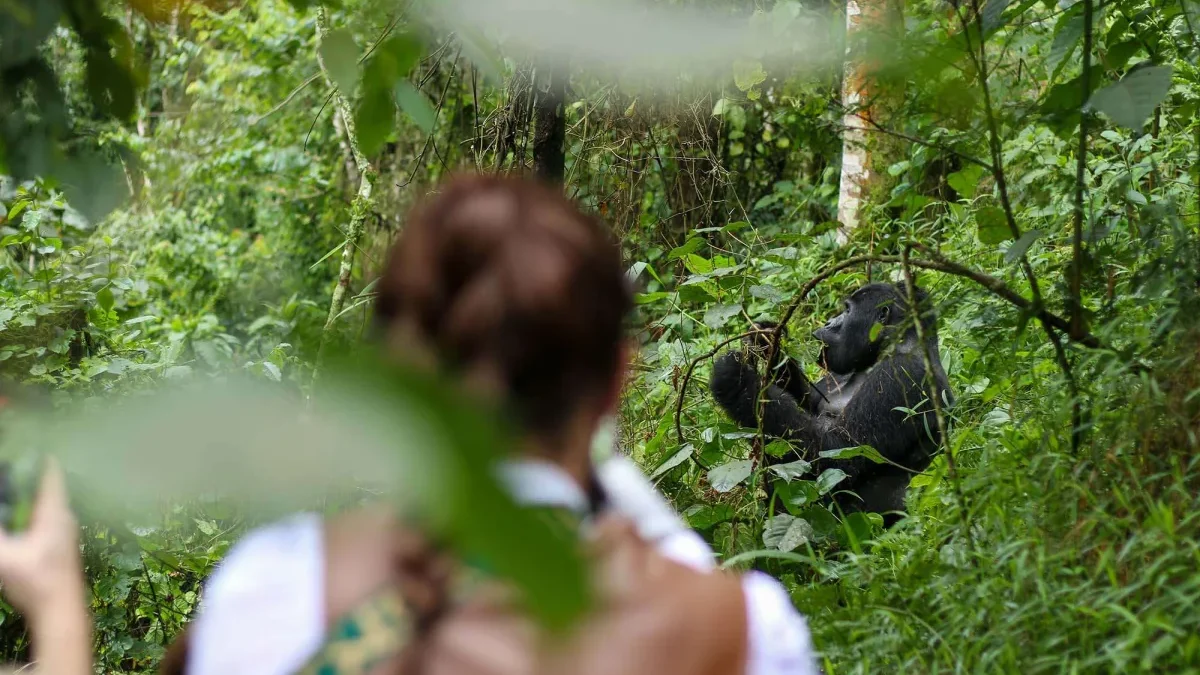
How a Guided Tour of Rwanda Can Be a Life-Changing Experience
February 27, 2025Gorillas are generally not dangerous to humans, especially when encountered in the wild during guided treks. These gentle giants are mostly peaceful, social animals that prefer to avoid conflict. However, they can become aggressive if they feel threatened, provoked, or if their group—especially infants—is in danger.

Key Points About Gorilla Behavior:
- Non-Aggressive Nature: Gorillas are shy and reserved, preferring to keep to themselves.
- Silverback Protection: The dominant male, or silverback, is responsible for protecting the group. If he senses a threat, he may display aggressive behaviors such as chest-beating, grunting, or charging.
- Habituated Gorillas: The gorillas visited during trekking tours in Rwanda, Uganda, and the DRC have undergone a habituation process, meaning they are accustomed to human presence and rarely show aggression.
- Respecting Their Space: To ensure a safe encounter, trekkers must follow strict guidelines, such as maintaining a safe distance, avoiding direct eye contact, and not making sudden movements.
By following the instructions of experienced guides and rangers, visiting gorillas is a safe and awe-inspiring experience. Go Safaris Africa offers well-organized gorilla trekking experiences in Rwanda, Uganda, and the Democratic Republic of Congo, ensuring both safety and conservation awareness.
Would you like assistance in planning your gorilla trekking adventure?


